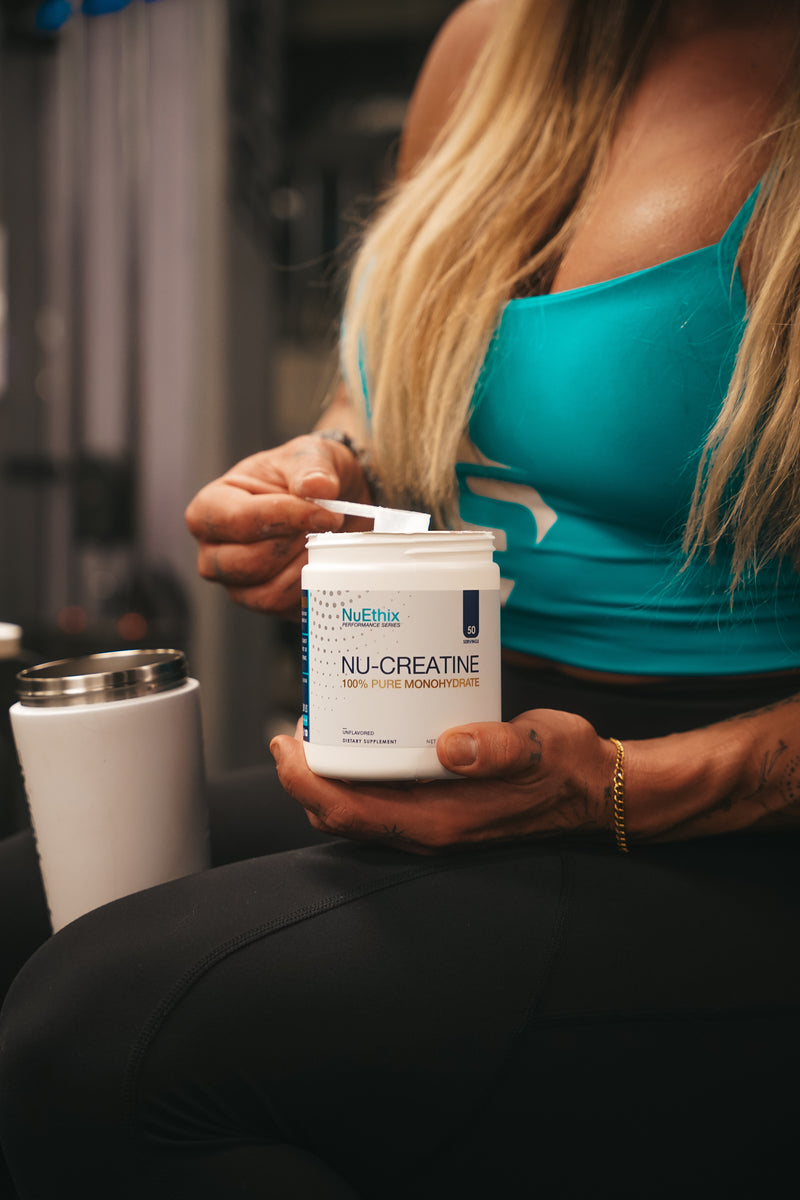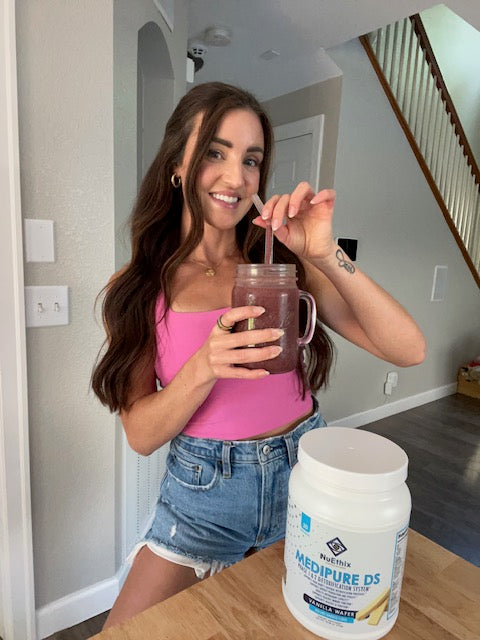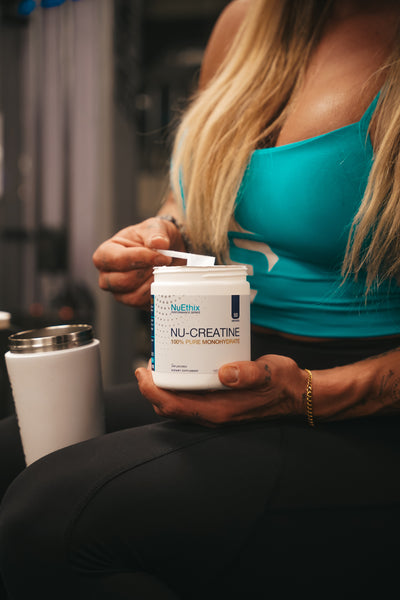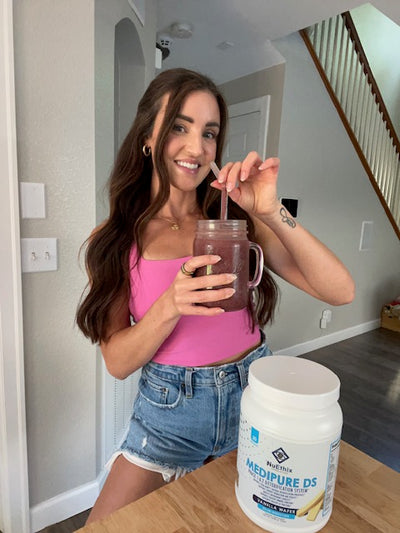
Why Hydration Is Crucial
Why Hydration Is Crucial
When it comes to our ability to survive each day, the biggest things that pop into our heads immediately are food and water. We all know that going without these can lead to our demise and we’ve tested the limits on how long we can survive without these essentials. It’s also been discovered that many issues come with depriving ourselves of these and the side effects are endless…
Keeping this in mind, the one crucial factor here is that hydration is without a doubt the predominant focus of survival as the average human can only live for three to four days [1] without it compared to three to four weeks without food. With today’s world being marketed more than advertisements on a racecar, people are drinking less and less water daily and surviving on juice and soda.
Unless you’re tracking your daily water intake, some people may not realize the fact that they are not getting adequate hydration, and some of those side effects that stem from this are often followed up by heavy complaints that can easily be traced back to this issue.
Hydration should be taken seriously, there’s no way of expressing the full importance without getting into the finer details of what can be expected from a negative aspect when you’re not drinking the proper amount of fluids or staying hydrated.
So, let’s discuss why hydration is important for us as humans and what the consequences are while highlighting all of the key ways that even an avid Diet Coke connoisseur can utilize to keep up with water intake.
Why is Water Important?
Water is crucial for our overall health as it helps protect vital organs, provides support for joints, ridding the body of bacteria, and regulates blood pressure. [2] For individuals who have medical/health conditions, it’s highly imperative to stay regularly hydrated as those who have a weakened immune system and those taking medication can become dehydrated more quickly than most.

If you haven’t guessed it already, water is also important for; are you ready for it?
Survival. Yes, who would have thought that drinking water could help keep you alive? In all seriousness though, to achieve a healthier and more beneficial life, it’s important to monitor your daily water intake especially if you’re someone who has an active lifestyle as you continue to lose water from exercise and strenuous activity.
How Much Water Should You Drink?
The amount of water someone should drink daily has no precise calculation or amount. However, the general rule for recommendation by experts is 9 cups per day for women and 13 cups for men [3] but this can vary depending on your activity level, or if you’re taking medication that can cause excess water loss.
It’s important to note that if you’re someone who regularly consumes caffeine, soda, or even alcohol, this can further your need to drink more water throughout the day to combat dehydration.

Monitoring your hydration can be as easy as detecting the color of your urine or if you’re experiencing common side effects of dehydration. For example, if you notice that your urine is more of a brownish color, then you most likely need to up your fluid intake.
If you think you’re not drinking enough water, then you’re probably not. Often, adults can be overconsumed with their daily responsibilities and tend to overlook the fact that they’ve hardly drank any water at all. Starting a routine of just drinking two glasses of water in the morning is a great starting point and setting an alarm for every couple of hours to drink a glass of water is another positive way of maintaining hydration levels.
Can You Drink Too Much Water?
Water intoxication (dilutional hyponatremia) is a very real thing and has been linked to symptoms that include nausea, vomiting, disorientation, confusion, and in some instances has been linked to death. [4][5]
Dilutional hyponatremia occurs when there is an excessive intake of fluids and exceeds an amount in which the kidneys are not able to eliminate water. [6]
While somewhat uncommon, one case study showed that a patient with mitral valve disease began excessively drinking water, estimated to be between 30-40 glasses, and experienced episodes of vomiting and distress. The patient denied medical attention and proceeded to drink more water before she eventually died due to acute water intoxication. [7]
To summarize, yes, it is possible to drink too much water, but you would have to consume an outrageous amount, and you might find it to be rather difficult to pull off in a normal environment. There is no reason to overdo it on fluid consumption.
Are There Levels of Dehydration?
Dehydration is categorized from mild, moderate, to severe. Individuals suffering from mild dehydration can usually be self-treated by drinking more fluids, but those who are moderately or severely dehydrated may require medical attention immediately.
Severe dehydration can often pass the point of no return for being able to hydrate yourself and instead, you will need intravenous fluid treatment to replenish your body. Not getting medical attention when dealing with severe dehydration can cause many health risks and should always be treated as an emergency.
Dehydration Side Effects
If you’ve ever been sick with the stomach flu, then you should have a good idea about how dehydration can make you feel like you’re close to being on your deathbed. The vomiting, disorientation, and lethargy (just to name a few) are all directly associated with a lack of fluids and electrolytes.
In extreme cases, death is inevitable if left untreated which has been documented at a high rate in young children, elderly, and those in poor health. [8] For those straddling the line and scraping by on just a glass of water or two every other day, side effects can be an annoyance as your body is essentially running on what would be the equivalent of less than a quarter tank of gas in your car.

Simple things like working out, going for a jog, or manual labor are going to turn into much more difficult tasks than they actually should be. By not drinking enough water, your body has to work harder which puts a strain on your heart due to the thickening of the blood. [9] This leads to further complications as you lose water during physical activity and by not replenishing fluid lost, you run the risk of strain on the kidneys, diarrhea, vomiting, and more. [10]
What are the Best Ways to Stay Hydrated?
While it’s a very popular recommendation, sports drinks are not always your best option as they can be loaded with sugar and empty calories that serve no real benefit aside from the minuscule amount of sodium and electrolytes found in these sports drinks.
While water is the best option for hydration levels, it’s also worth noting that during any physical activity, your body not only loses water but also electrolytes. Chloride, potassium, and sodium [11] are all key electrolyte components. Drinking water alone will only help replenish electrolytes lost at a minimal amount which means opting for an electrolyte replenishment source will have a more positive impact in combination with water.
If you’re not keen on drinking pickle juice, which is a great way to replenish electrolytes due to the high sodium, potassium, and magnesium content [12] – there are many options on the market in more ‘flavorful’ options that are formulated specifically for restoring electrolytes without the pickle taste.
A perfect option for adults and kids is the newest addition to the NuEthix Formulations family in, NU-Lytes. This product was specifically formulated with hydration and electrolytes in mind. NU-Lytes contains a balanced blend of magnesium, sodium, and potassium wrapped up in three mouth-watering flavors and can be used on the go wherever and whenever you need them with 15 convenient stick packs in every box.
NU-Lytes are the perfect companion to water and if you’re picky about what water you drink or just need some flavor to help you drink more water throughout the day, this is by far the best option for you. This product also stands out amongst the rest as most hydration drinks and powders use ordinary table salt while NU-Lytes uses sea salt for an added bonus.
Rundown
If you haven’t already heard it enough, hydration and electrolyte levels are extremely important to your everyday health and well-being – not to mention just being able to survive in general. Unpacking all of this information together brings a different perspective into overall thinking if you’re finding yourself questioning some of the symptoms you’re having daily.
Odds are that if you’re reading this, then you probably are one of the individuals not getting enough fluids throughout the day. Not remembering to drink water or just hardly drinking any water for a couple of days at a time can have a pretty big impact and by exploring some of the suggestions listed above, you can help combat this in easy and strategic ways without breaking the bank or your taste buds.
References
- Popkin, B. M., D’Anci, K. E., & Rosenberg, I. H. (2010). Water, hydration, and health. Nutrition Reviews, 68(8), 439–458. https://doi.org/10.1111/j.1753-4887.2010.00304.x
- Harvard Health. (2023, May 22). How much water should you drink? https://www.health.harvard.edu/staying-healthy/how-much-water-should-you-drink
- Hydrating for health. (2024, June 20). NIH News in Health. https://newsinhealth.nih.gov/2023/05/hydrating-health#:~:text=But%20experts%20generally%20recommend%20drinking,cups%20for%20men%20on%20average.
- Peechakara, B. V., & Gupta, M. (2023, June 26). Water toxicity. StatPearls - NCBI Bookshelf. https://www.ncbi.nlm.nih.gov/books/NBK537231/#:~:text=Water%20toxicity%20can%20occur%20due,to%20the%20variability%20of%20symptoms.
- Farrell, D. J. (2003). Fatal water intoxication. Journal of Clinical Pathology, 56(10), 803–804. https://doi.org/10.1136/jcp.56.10.803-a
- Joo, M. A., & Kim, E. Y. (2013). Hyponatremia caused by excessive intake of water as a form of child abuse. Annals of Pediatric Endocrinology & Metabolism, 18(2), 95. https://doi.org/10.6065/apem.2013.18.2.95
- Farrell, D. J. (2003b). Fatal water intoxication. Journal of Clinical Pathology, 56(10), 803–804. https://doi.org/10.1136/jcp.56.10.803-a
- Maughan, R. J. (2012). Hydration, morbidity, and mortality in vulnerable populations. Nutrition Reviews, 70, S152–S155. https://doi.org/10.1111/j.1753-4887.2012.00531.x
- Taylor, K., & Jones, E. B. (2022, October 3). Adult dehydration. StatPearls - NCBI Bookshelf. https://www.ncbi.nlm.nih.gov/books/NBK555956/
- Taylor, K., & Jones, E. B. (2022b, October 3). Adult dehydration. StatPearls - NCBI Bookshelf. https://www.ncbi.nlm.nih.gov/books/NBK555956/
- Professional, C. C. M. (n.d.). Electrolytes. Cleveland Clinic. https://my.clevelandclinic.org/health/diagnostics/21790-electrolytes
- Clinic, C. (2024, July 8). 6 Health benefits of drinking pickle juice. Cleveland Clinic. https://health.clevelandclinic.org/6-health-benefits-of-drinking-pickle-juice

Austin Perry
Veteran fitness and health writer Austin Perry has accrued almost a decade worth of experience in sports nutrition and supplementation while having numerous featured articles published and shared within the wellness community.





